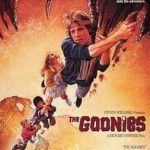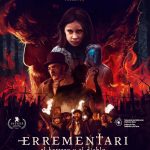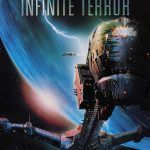War Horse (2011)
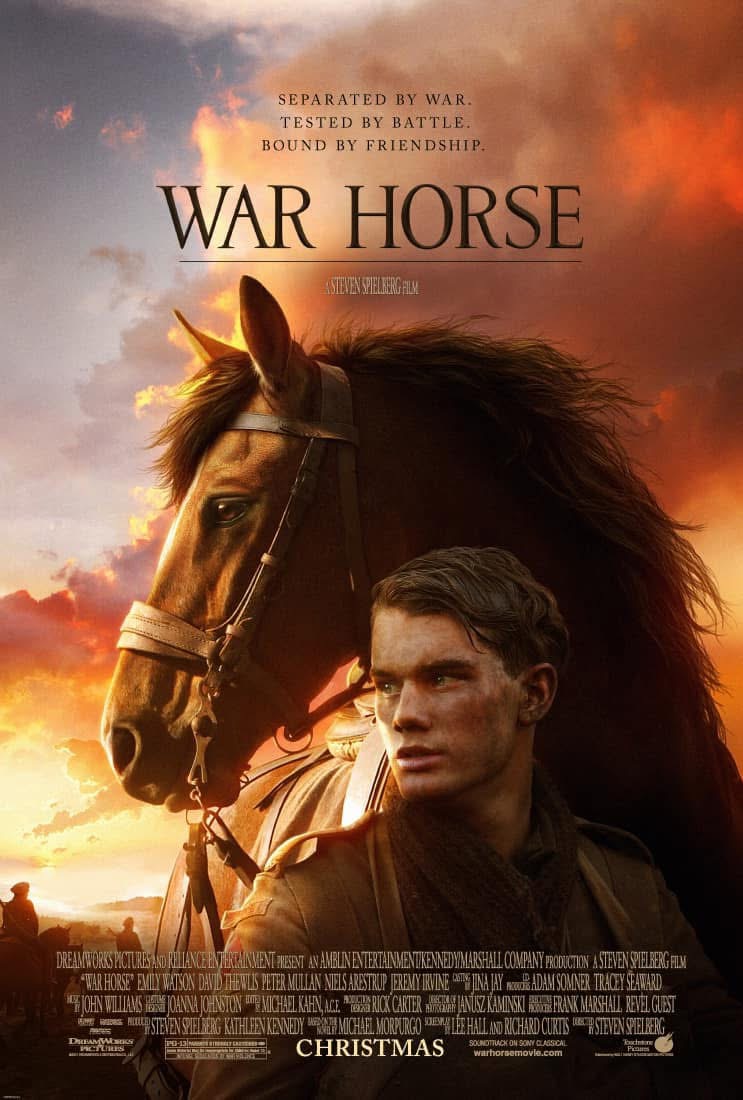
“War Horse” (2011), directed by Steven Spielberg, is a World War I drama that tells the poignant story of a young horse named Joey, who forms a deep bond with a boy named Albert (Jeremy Irvine), and their separation as Joey is sold to the cavalry and thrust into the horrors of war. Based on the 1982 novel by Michael Morpurgo and adapted from the successful stage play, War Horse is a visually stunning and emotionally charged film that explores themes of loyalty, friendship, and the devastating effects of war.
Plot and Story
The plot of War Horse is straightforward, but emotionally compelling. The film begins in rural England, where Joey is born on the Narracott farm. He is initially sold to Albert’s father (Peter Mullan), who is desperate for money and needs the horse for farm work. Albert forms a deep, loving bond with Joey, and the two quickly become inseparable. However, as World War I erupts, Joey is sold to the British cavalry, where he faces a life of hardship and danger. The narrative follows Joey as he is passed from soldier to soldier, experiencing both the brutality of war and the kindness of individuals who, despite the surrounding chaos, care for him.
While the story focuses primarily on Joey’s journey, it also weaves in several subplots involving the human characters—Albert’s determination to reunite with Joey, the soldiers who bond with the horse, and the impact of the war on both the soldiers and civilians involved. The film touches on the futility and brutality of war, but it also highlights moments of hope, bravery, and resilience, particularly through the bond between Joey and the humans who encounter him.
The film’s pacing is steady, with emotional peaks and valleys as it shifts between scenes of tenderness and those depicting the horrific realities of war. The narrative does not linger too long on any one individual storyline, as Spielberg uses Joey’s journey as a framework to present the broader impact of the war on a diverse group of people, from British soldiers to German officers.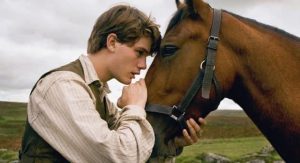
Characters and Performances
The performances in War Horse are generally solid, though the film is, unsurprisingly, more focused on its animal star than its human cast. Jeremy Irvine as Albert is a standout, capturing the sincerity and determination of his character. His portrayal of a young man who is willing to go to great lengths to reunite with his beloved horse is heartfelt and earnest. The film explores Albert’s emotional growth, from a naive farm boy to a soldier in the trenches, and Irvine brings a quiet strength to the role.
Tom Hiddleston (as Captain Nicholls), Benedict Cumberbatch (as Major Stewart), and David Thewlis (as Sergeant Fry) all have supporting roles as soldiers who interact with Joey throughout the war. Their characters, while interesting, do not receive much depth, as the film focuses primarily on the bond between Joey and the humans who love him, rather than delving deeply into individual personalities. Nonetheless, the actors do what they can with the material, bringing sincerity and gravitas to their roles.
Niels Arestrup, who plays a German officer named Pferde, offers a more nuanced portrayal of the human cost of war, bringing a sense of depth to his role as someone who, despite being on the opposing side, also sees Joey as a creature deserving of care.
However, War Horse is, at its core, a story about Joey. The horse’s performance is nothing short of extraordinary, aided by skilled animal trainers and CGI when necessary. The horse conveys emotion and personality in ways that resonate with the audience, making Joey a believable and unforgettable character. Through the horse’s eyes, the viewer experiences both the beauty and horror of war, as Joey witnesses moments of kindness amid the carnage. His journey through the war serves as a metaphor for the larger themes of endurance and survival.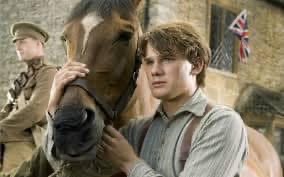
Direction and Cinematography
Spielberg’s direction is both meticulous and grand in scale. Known for his ability to craft emotional narratives with broad appeal, Spielberg captures both the intimate, tender moments between Joey and Albert, as well as the sweeping, grand battles of war. The film is visually stunning, with cinematography by Janusz Kamiński that captures both the idyllic countryside of England and the stark, brutal landscapes of the warfront. The battle sequences are gripping, with Spielberg emphasizing the chaos and devastation of the trenches, but also the quiet moments of human compassion that arise in the most unexpected places.
The film’s visual style is a blend of realism and romanticism. The scenes of war are gritty and brutal, showcasing the horrors of the battlefield, while the film’s portrayal of Joey’s journey feels almost mythic, as though the horse is a symbol of hope amid the despair. Spielberg’s use of wide shots contrasts the enormity of war with the intimacy of the horse’s journey, effectively heightening the emotional stakes.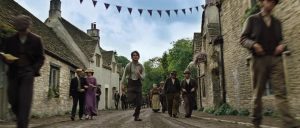
Themes and Tone
At its core, War Horse is a film about the resilience of the human (and animal) spirit amidst the brutality of war. The film explores the emotional bond between humans and animals, particularly in times of conflict, and portrays the unbreakable loyalty that exists between Joey and the characters he encounters. The horse symbolizes innocence, hope, and survival, even in the face of overwhelming odds. The film emphasizes that, despite the horrors of war, kindness and compassion can still exist.
The themes of sacrifice, loyalty, and friendship are woven throughout the narrative, with Joey’s journey serving as a reflection of the larger human experience during the war. The soldiers who care for him, despite the dehumanizing aspects of war, are given moments of vulnerability that speak to the universal need for connection. Spielberg also touches on the senselessness of war, showcasing how it robs people of their humanity, yet through the enduring love between Joey and Albert, he suggests that there is always hope for redemption.
The tone of the film is uplifting, though undeniably bittersweet. The emotional highs of Joey’s journey—his moments of bravery and survival—are tempered by the harsh realities of war. The film doesn’t shy away from showing the pain and loss that war brings, but it ultimately leaves viewers with a sense of hope and redemption, as the bond between Joey and Albert represents the possibility of healing after great suffering.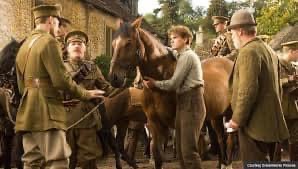
Music and Soundtrack
The score, composed by John Williams, is sweeping and orchestral, perfectly complementing the epic scope of the film. Williams’ music adds to the emotional resonance of the film, with stirring compositions that heighten both the tender and dramatic moments. The score underscores the tension of the war scenes and enhances the emotional connection between Joey and the human characters, especially in the more poignant moments.
Final Thoughts
War Horse is a visually breathtaking and emotionally moving film that showcases Spielberg’s skill at creating large-scale, heartfelt narratives. While it may at times feel overly sentimental or formulaic, its depiction of the bond between Joey and his human companions transcends the typical war film tropes. The film’s focus on the experiences of an animal caught in the horrors of war provides a unique perspective on the conflict and underscores the themes of loyalty, sacrifice, and survival.
Though not without its melodrama, War Horse is a well-crafted film that resonates emotionally and visually. The bond between Joey and Albert is central to the story, and Spielberg’s direction, coupled with stunning cinematography and a powerful score, elevates the film into a heartfelt exploration of war, survival, and the enduring power of love. It may appeal more to those looking for a war film with a humanizing twist, focusing more on emotional connection than on combat, but for fans of Spielberg’s work and those looking for a stirring tale of courage, War Horse is a memorable and moving experience.


